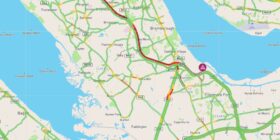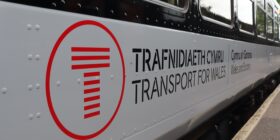Covid-19: More details on access to emergency childcare provision for key workers and vulnerable learners in Flintshire

All schools in Flintshire, like the UK, closed on Friday and will remain so ‘‘for some considerable time’ due to the coronavirus outbreak.
It is unknown when schools will be back open, it’s a decision which hinges how well the UK manages to stem the spread if Covid-19.
The UK government has asked schools to continue to provide care for a limited number of children – children who are vulnerable and children whose parents are critical to the Covid-19 response and cannot be safely cared for at home.
Flintshire County Council has issued a statement this morning (Sunday, March 22) outlining more details on emergency childcare provision, it says:
Parents need to keep their children at home wherever possible and schools/settings should be open only for those children who absolutely need to attend.
Only children whose parents are critical to the Covid-19 response should be offered places in schools/settings when there is no safe, alternative provision.
FOR THE WEEK COMMENCING 23rd MARCH Flintshire Headteachers have been advised to prioritise the allocation of places to children of parents who meet the following criteria:-
Category 1 – a single parent with a role on the list defined as critical to the Covid-19 response from Welsh Government
Category 2 – where both parents have roles on this list
Category 3 – a parent from a family unit who does not qualify under categories 1 and 2 above, and has a role on this list, and where there is an explicable and genuine reason why they need to access provision.
Headteachers may use their discretion for this third category – provided that they have sufficient provision – as they know their families’ circumstances best.
Should there be insufficient provision due to the requirements of social distancing, Headteachers have been advised by the Council to refuse admittance to the children of the third category above and liaise with their neighbouring headteachers to offer a place close by where this is possible.
Alternative provision is in being made for children entitled to free school meals and will be introduced shortly. This group SHOULD NOT attend their local schools this week unless their parent(s) fall under the above categories 1-3. Further communication will follow.
Provision for children classed as vulnerable is also being planned. When this is ready to start further communications will be issued.
UK government has released a list of what it has classes as keyworker.
Health and social care
This includes but is not limited to doctors, nurses, midwives, paramedics, social workers, care workers, and other frontline health and social care staff including volunteers; the support and specialist staff required to maintain the UK’s health and social care sector; those working as part of the health and social care supply chain, including producers and distributers of medicines and medical and personal protective equipment.
Education and childcare
This includes nursery and teaching staff, social workers and those specialist education professionals who must remain active during the COVID-19 response to deliver this approach.
Key public services
This includes those essential to the running of the justice system, religious staff, charities and workers delivering key frontline services, those responsible for the management of the deceased, and journalists and broadcasters who are providing public service broadcasting.
Local and national government
This only includes those administrative occupations essential to the effective delivery of the COVID-19 response or delivering essential public services such as the payment of benefits, including in government agencies and arms length bodies.
Food and other necessary goods
This includes those involved in food production, processing, distribution, sale and delivery as well as those essential to the provision of other key goods (for example hygienic and veterinary medicines).
Public safety and national security
This includes police and support staff, Ministry of Defence civilians, contractor and armed forces personnel (those critical to the delivery of key defence and national security outputs and essential to the response to the COVID-19 pandemic), fire and rescue service employees (including support staff), National Crime Agency staff, those maintaining border security, prison and probation staff and other national security roles, including those overseas.
Transport
This includes those who will keep the air, water, road and rail passenger and freight transport modes operating during the COVID-19 response, including those working on transport systems through which supply chains pass.
Utilities, communication and financial services
This includes staff needed for essential financial services provision (including but not limited to workers in banks, building societies and financial market infrastructure), the oil, gas, electricity and water sectors (including sewerage), information technology and data infrastructure sector and primary industry supplies to continue during the COVID-19 response, as well as key staff working in the civil nuclear, chemicals, telecommunications (including but not limited to network operations, field engineering, call centre staff, IT and data infrastructure, 999 and 111 critical services), postal services and delivery, payments providers and waste disposal sectors.










